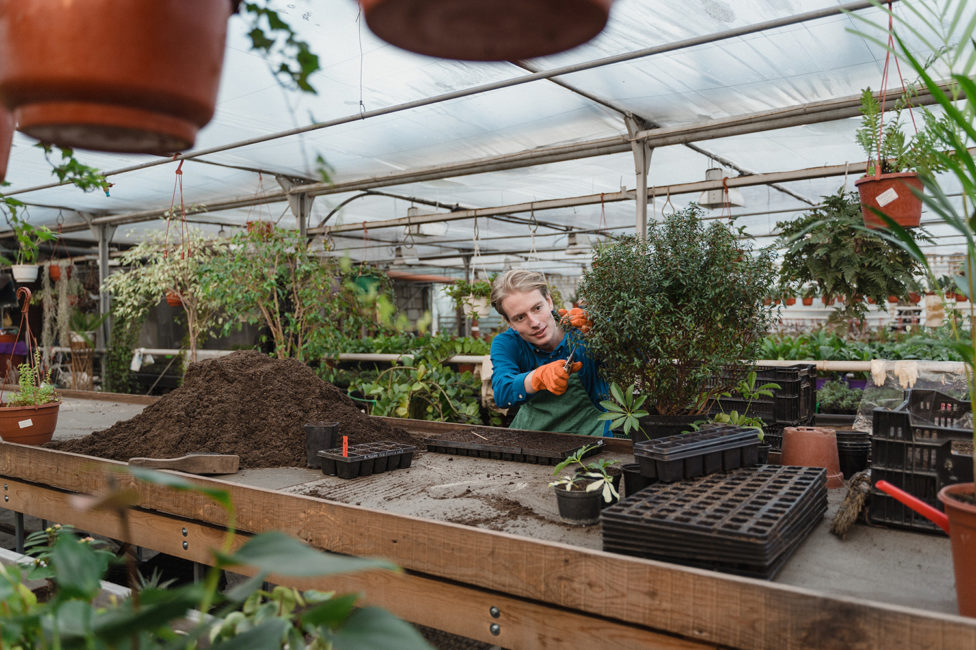Horticulture is a booming industry in Australia that covers a variety of subsectors, including arboriculture, floriculture, landscaping, nursery work, and other similar areas. A career in the growing sector is enriching because of its vital role in keeping food on the shelves and preserving plant life.
Day-to-day, Horticulturalists are responsible for overseeing the growth, harvesting, packing and distribution of crops. Each year, the Australian population grows by approximately 1.4 per cent, meaning there is a growing number of people to feed. In addition, environmental challenges such as climate change and soil degradation are adding to the dilemma – that is why horticulturalists are vital to the Australian economy.
If you are considering a career in Horticulture, you should possess excellent interpersonal skills, be comfortable working outdoors in various weather conditions, and enjoy working with your hands. Additionally, it would help if you were comfortable working in a loud environment with frequent exposure to chemicals used in crop production.
Horticulture also offers compelling career prospects. After studying a Certificate III qualification in roles such as Senior Rural Operations Farmhands, you can continue your training by undertaking a Certificate IV in Farm Production Administration, which paves the way to studying a diploma in Agronomy.
Typical Duties of a Horticulture Apprentice
As part of your horticulture training, you will apply essential biosecurity measures, identify, and report signs of disease or pest, operate irrigation systems, harvest crops mechanically and apply chemicals to control weeds, diseases, and pests. Additionally, you will also be required to safely use specialised equipment and machinery.
Typical Entry Requirements
To train as a Horticulturist, prospective apprentices must have completed Year 10 as a minimum. For example, 39.6 per cent of those in the agricultural, forestry and horticultural industries have a Year 10 education. If you are interested in a specific industry area, it’s best to undertake an apprenticeship that equips you with the relevant skills and experience. For example, 30.1 per cent of those working in the industry obtained a Certificate III or IV qualification.
Horticulture employers will look for someone who can demonstrate interest and understanding of horticulture. Additionally, you should be prepared to work in a physically demanding outdoor environment. Apprenticeships in horticulture typically take between 12 and 36 months to complete.
Qualified Horticulturalist Average Wage
The median weekly wage of a Horticulturalist in Australia is $54,521 per year, but wages fluctuate by state based on location and demand.
The average hourly wage for a qualified Horticulturalist varies by Australian state and experience level:
Sydney, New South Wales: AU$45.85 per hour.
Melbourne, Victoria: AU$43.83 per hour.
Brisbane, Queensland: AU$39.19 per hour.
Darwin, Northern Territory: AU$40.81 per hour.
Perth, Western Australia: AU$41.53 per hour.
Canberra, Australian Capital Territory: AU$40.65 per hour.
Hobart, Tasmania: AU$39.85 per hour.
Horticulture is Queensland’s second-largest primary industry, employing approximately 25,000 people at varying experience levels. The state is home to around 2800 horticultural farms, which produce more than 120 types of fruit and vegetables. Furthermore, according to Job Outlook, 32 per cent of all agricultural, forestry and horticulture workers are located in Queensland. As a result, the state will likely have plenty of job openings for horticulture roles.
How to Become a Horticulturalist
To become a Horticulturalist, you should consider undertaking an apprenticeship in your chosen area of interest. On-the-job training with an employer in the horticulture sector will allow you to learn the necessary skills and gain experience in the industry. Prominent employers in the sector include the Costa Group, Plants Plus, Sundrop Farms and Yates.
How to Find and Get a Horticulture Apprenticeship
The Australian Apprenticeships website provides helpful information, advice, and contact details of certified Apprenticeship Network Providers. An Apprenticeship Network Provider will help you determine the most suitable apprenticeship based on your skills and experience, assist with administrative support and act as a regular contact for apprentices and their employers.
Suppose you’re unsure about which apprenticeship would suit you. In that case, Australian Apprenticeship Pathways provides helpful information, including career interest explorer tools to help you identify your work type and training descriptions to give you more information about what to expect from an apprenticeship.
Certificate III Senior Rural Operations Farmhand Qualification
Completing a Certificate III Senior Rural Operations Farmhand qualification will give you the skills and experience to work in various areas of agriculture, horticulture, and conservation land management. During training, apprentices will implement animal health control programs, handle, and store chemicals, monitor and maintain feedstocks, and other similar tasks.
The apprenticeship will take around two years to complete. You can learn more about the duties involved here.
Certificate III Production Horticulture Team Leader Qualification
Undertaking a Certificate III Production Horticulture Team Leader qualification will equip you with the necessary skills to support farms. Once qualified, you will support farm managers by preparing the soil, implementing crop planting, and coordinating harvesting. Additionally, you will assist other team members by spraying crops, identifying threats such as diseases and pests and operating machinery safely.
During training, you will operate machinery and equipment, harvest crops mechanically, implement post-harvest programs, perform machinery maintenance, and control diseases, disorders and plant pests to ensure crops are of the highest possible quality.
The apprenticeship will take approximately one year to complete. You can find more information about your duties as a Production Horticulture Team Leader apprentice here.
Start Your Career in Horticulture by Undertaking an Apprenticeship
Horticulture is a growing sector in the Australian economy, and climate change and soil degradation will only make the role of horticulturalists more vital. If you would like to undertake an apprenticeship in horticulture, please visit the Australian Apprenticeships website to explore your options and find suitable Apprenticeship Network and registered training organisation providers.


